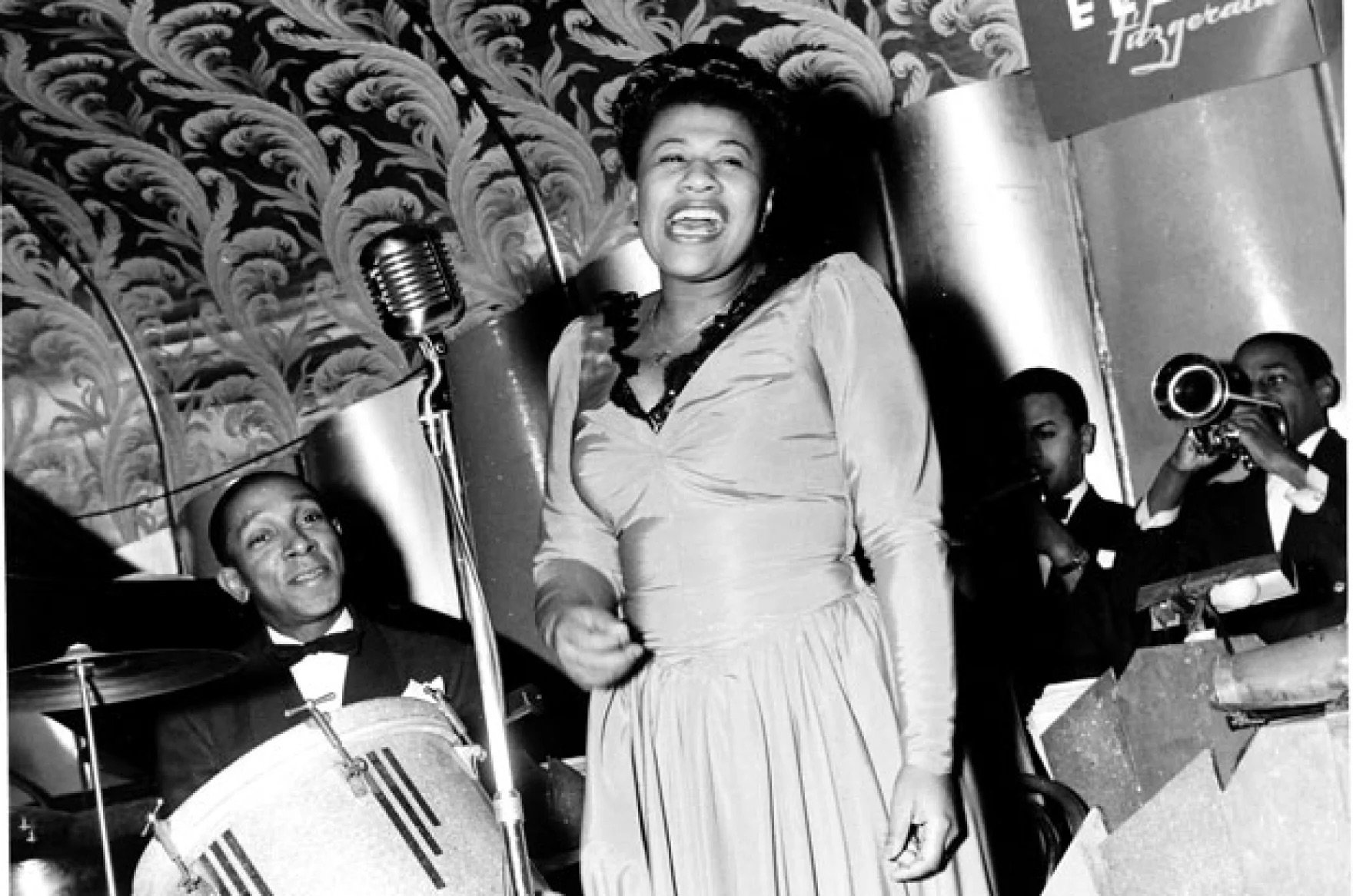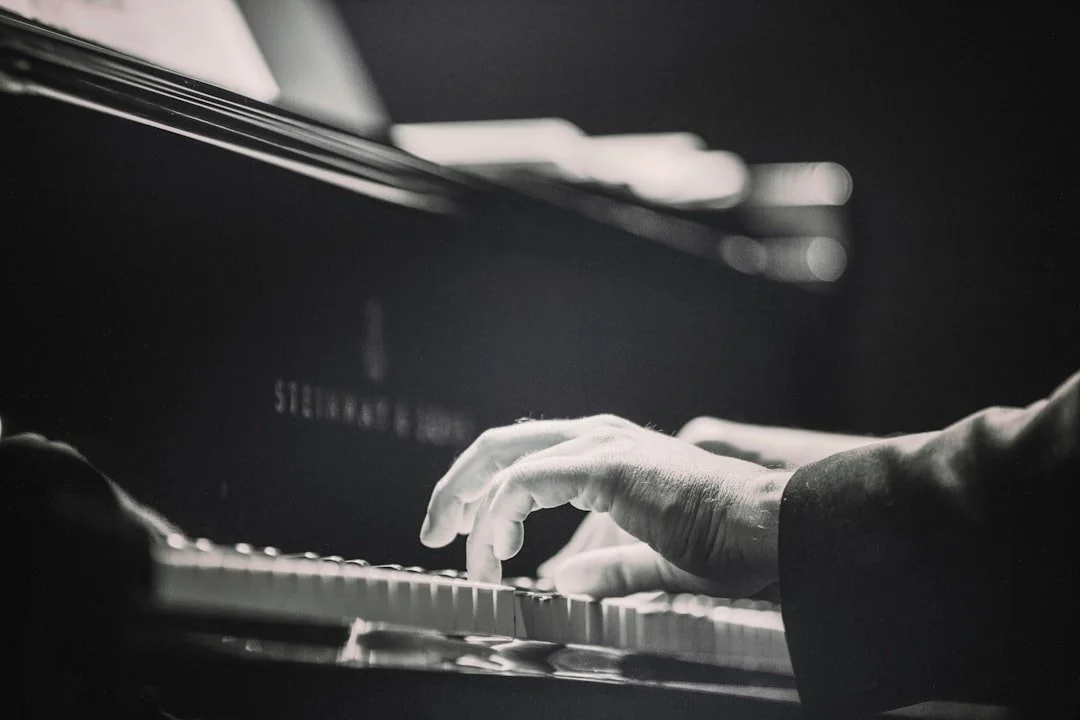I've been thinking about music I love.
When I was about twelve years old, I went to the Hollywood Bowl with a person I can no longer remember to hear Nat King Cole. He opened with his standard hits, all of which I knew and sang – Mona Lisa, They Tried to Tell Us We’re Too Young – and came back after intermission with a gospel choir from a downtown Los Angeles church. I’d sung many of these songs in Sunday School and summer church camp, but I’d never heard a Black choir sing their own music. The music that night transformed my soul with a wonder I still experience when I hear Black musicians sing gospel. I’ve told my children that if there’s a reception following any memorial service for me, they can just play over and over the recording of Aretha Franklin’s two-hour 1972 gospel concert at New Temple Baptist Church in Watts and send me on home to Jesus.
BECOME A FREE SUBSCRIBER TO I’VE BEEN THINKING
In 1953, when I was in junior high school, my friend Mike Hancock told me that his father was a disc jockey on the radio and, though he was white, played what Mike called race music. His father was Hunter Hancock whom Wikipedia now describes as the first in the Western United States to play rhythm and blues records on the radio, and among the first to broadcast rock and roll. I found Huntin’ with Hunter on my bedside radio and went to sleep for months listening to Fats Domino, the Crows, Ray Charles before he was famous, and later Little Richard and Chuck Berry.
It was a short step from this race music to my earliest experiences with rock and roll, which began with Elvis. I wasn't so attracted by his hips and his libido, but I sat with my friend Chris in his bedroom and fell in love with Elvis' voice, perhaps because I loved to sing along with him. When the Beatles visited the United States in 1954, it was clear that this was brand-new music. From their early songs, crafted in Liverpool, until Sgt. Pepper in 1967, I was as obsessed with them as the rest of my contemporaries were. I was part of the restless 60s generation, and from the Stones’ (I Can’t Get No) Satisfaction (1965) to U2’s I Still Haven’t Found What I’m Looking For (1987), we defined our search for ourselves by this music.
In the mid-1980s I bought our older son a cheap six-string acoustic guitar; it was like dropping a trout in a stream! He had found his natural passion. He said to me in his mid-thirties, I can’t imagine my life without Bob Dylan. For twenty years, he wrote, arranged, and performed in San Francisco, New York, and mostly L.A. with a series of bands (my personal favorite was Uke Fink, featuring a ukulele backed by guitar, bass, and drums). Becky and I spent dozens of Friday and Saturday nights in small bars and clubs, watching him and his friends celebrate life in the music they produced.
Now in his fifties, a father and a therapist, he plays occasionally for fun and is an available encyclopedia on the history of rock music. During those earlier years in bands, I learned to know a side of him – the side that sings in his soul – that I try to stay in touch with. He keeps me up to date on more current music, though none of it since those classic rock years from the fifties through the eighties has captured my own musical soul.
One Easter about twenty years ago, the choir Becky sings in did the choral section of Gustav Mahler’s Resurrection Symphony. Our friend Leslie was the alto soloist and there was a moment near the end when her voice rose up out the choir like Jesus rising from the dead. I remember where I was sitting when this happened, and I remember the wonder (like the first time I heard gospel) of the music that inhabited my cellular self, as if some new sacred experience now lived in me. I went out and bought the version of this symphony conducted by Seiji Ozawa, on which Marilyn Horne takes Leslie’s part. For decades now, on Easter I find a time by myself, skip to these choral sections, and allow this music to once again be as close as I get to an experience of resurrection.
In our family’s lore is the story of my mother propping me up as a toddler against the front of our living room console with the radio playing and me, clad only in a diaper, rocking left to right in rhythm to the big band music of Jimmy Dorsey and Glenn Miller, or to the vocals from Ella Fitzgerald and Louis Armstrong. Still today, wandering through a mall, I find myself softly singing the lyrics to overhead speakers playing instrumental versions of these personal treasures so deeply stored in my little-boy memories. She taught me to love the music she loved, music that has lingered through my lifetime.
For fifteen years, I went to the annual Playboy Jazz Festival at the Hollywood Bowl and heard Miles Davis and Grover Washington, Etta James and Herbie Hancock and hundreds of others. I came early the weekend Ella Fitzgerald died and listened to an hour of her vocals as the crowd arrived, grateful that my mother, who introduced me to her music when I was still in diapers, had taken Becky and me to see her in a small dinner club in New York in the 1960s.
I love to sing. I was fortunate to be born with a sweet tenor voice that served me well for decades. When we graduated from seminary, some of my classmates put together a mock Year Book, including their predictions of the jobs we’d have five years after graduation. I would be, they guessed, the lead singer in a rock band. So much for their confidence in my career in the ministry, but there was something about their expectation that seemed congruent to me. For decades, beginning in childhood in front of the console, I’ve learned the lyrics to hundreds of songs. When no one is around, when I’m in the shower or driving by myself, I sing songs I first heard from Sinatra and Johnny Mathis, Sting and Freddy Mercury and Paul Simon, from blessed Ella and Sarah Vaughn to Linda Ronstadt and Joni Mitchell and Eva Cassidy.
My mother also encouraged us to sing. Until I left home for graduate school, there were regular family gatherings where, as a self-taught pianist, she’d play Baptist hymns she’d learned as a girl in her father’s church, and show tunes from current Broadway productions. My dad and aunts and uncles, well-lubricated with Black Russians (a lethal combination of vodka and coffee liqueur), led the chorus while kids aged three to twenty-two sang along as best we could, which mostly meant loudly.
Years later, twenty of us were celebrating my mother’s 70th birthday at her favorite restaurant when the background piano player began softly playing, I’ll Be Seeing You (in all the old familiar places) while the patrons enjoyed their expensive dinner. My cousin Pam and I leaned against one another and starting quietly singing the familiar lyrics. Soon the entire table, including Mom, was disturbing the other diners with our boisterous rendition of this beloved standard. This love of music, and of these songs, is the foundation of a lifetime of devotion to listening and singing.







